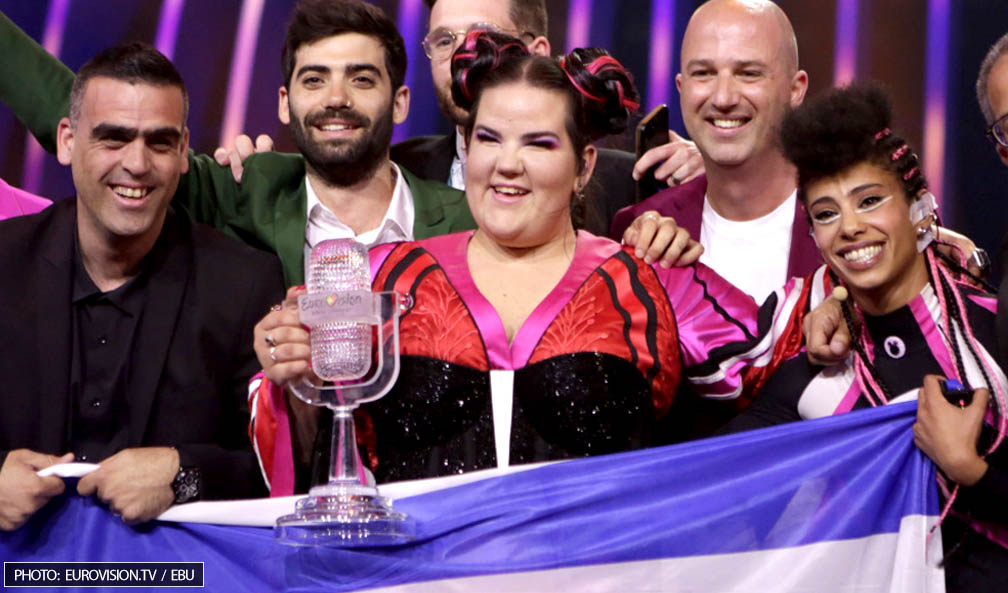
What’s the best way to select a winning Eurovision song? In the first article of our series, we reveal surprising data on national finals vs. internal selections. Article by Ilay Gaist and Noy Yehoyada.
Every year, with the revival of the Eurovision season, thousands of viewers, fans, and professional jurors attempt to crack the code how to win at Eurovision: what is the secret formula that brings a country to first place? Is there an advantage in selecting an artist internally, or does a dazzling and authentic national final hold the edge? What stories lie behind these different choices, and why do some countries decide to break with tradition and switch strategies? In our “Eurovision Formula” series, we dive deep into historical data. In this article, we examine one of the most intriguing aspects – the selection method and its impact on the journey to the contest’s prestigious glass trophy.
Selection Systems: National Finals, Internal Choices, or Mixed System?
The road to Eurovision glory begins with the very first step: how each country chooses its entry. Some national broadcasters prefer to handpick the artist and song behind closed doors (internal selection), while others rely on the wider public through vibrant national finals. Certain countries blend the two approaches. Decades of contest data reveal that some methods have proven more successful than others – and often, the small decisions make the biggest difference on stage. So, which selection system holds the strongest chance of success?
Austria: The Internal Path to Triumph

Austria has won Eurovision three times – all through internal selections. In 1966, Üdo Jürgens won with “Merci, Chérie”, in 2014, Conchita Wurst triumphed with “Rise Like a Phoenix”, and in 2025, JJ secured victory with “Wasted Love”. Austria’s consistency highlights its trust in internal decision-making – and evidence that it works effectively.
Switzerland: From National Finals to Internal Selection
Nemo Mettler, Switzerland’s most recent winner, represents a clear shift in approach. While the country previously claimed Eurovision victories through national finals with Lys Assia and Céline Dion, by 2024 it had leaned toward internal selection. This move aligned Switzerland with a growing trend in recent years.
Ireland, Nordics, and Baltics: Loyal to National Finals
Ireland and Sweden, the two most successful countries in Eurovision history with seven wins each, demonstrate the enduring power of national finals. All seven Irish victories came through this method, while Sweden relied (apart from its debut entry) on its iconic Melodifestivalen to select entries. Denmark and Norway, with three wins each, also maintain their dedicated national finals. Finland’s sole Eurovision triumph likewise came through its national final, while Estonia and Latvia claimed early 2000s victories via local national finals – contests which later rebranded under new names.
France: Mixing It Up
France has claimed five Eurovision wins, each through a different approach. In 1960, 1962, and 1969, its entries were selected internally, while in 1958, the broadcaster used a mixed system. Only in 1977 did France win using a national final. An additional near-victory came in 1991, when a French entry, selected internally, tied for first place with Carola from Sweden but lost due to a tie-breaker rule at the end of voting.
Conclusions: Is There a Winning Formula?
After analyzing all winners in Eurovision history, the numbers speak clearly. Out of 73 champions:
-
44 winners emerged from national finals.
-
20 winners were chosen through internal selection.
-
9 winners resulted from mixed system.
The data shows that while internal selection offers advantages such as greater control over the entry and the ability to tailor it with precision, national finals remain the most successful path, accounting for 60.27% of all wins.
The big question is: will this pattern hold in the coming years? And what other factors – such as language choice – affect success? We’ll explore these in the next article of the “Eurovision Formula” series.
Eurovision 2026: The 70th Eurovision Song Contest will be held in Austria, following the country’s third historic win with the song “Wasted Love” performed by JJ. This will be the third time the contest is hosted in Austria, after 1967 and 2015.

 Israel is a prime example of a country that refuses to stick to just one method, having won with all three: in 1978 and 1979 through a national final, in 1998 via an internal selection, and in 2018 with a mixed system – Netta Barzilai was chosen through a reality show, while her song was internally selected.
Israel is a prime example of a country that refuses to stick to just one method, having won with all three: in 1978 and 1979 through a national final, in 1998 via an internal selection, and in 2018 with a mixed system – Netta Barzilai was chosen through a reality show, while her song was internally selected.